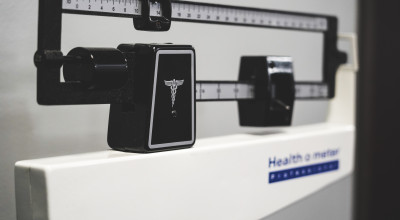Three Unhealthy Habits That Are Common in Addiction Recovery
June 18th, 2019
It is often a common practice to simply replace one addiction with another. Many individuals going through addiction recovery let other bad habits creep in. Not only are these bad habits unhealthy in and of themselves, but they can actually reduce your chances of success in recovery. It is possible for a bad habit to become an addiction; Especially for someone who has a history of struggling with drugs and alcohol. Simply transferring one addiction to another is never the right way to recover. We wanted to provide you with some insight into a few of the most common unhealthy habits that we see from those in recovery and give you tips on how to avoid them all together.
Caffeine
Caffeine, especially coffee, is a part of many individuals daily lives and therefore is not seen as harmful. However, caffeine is in fact an addictive substance that can cause its own set of issues. One of the big reasons why we don’t recommend taking up caffeine in recovery is the fact that caffeine can increase anxiety. It does this by increasing the amount of a certain neurotransmitter called acetylcholine within the brain. Acetylcholine can improve your mood, improve motor functions, and increase attention, however in excessive amounts it can contribute to feelings of depression and anxiety. Once you consume caffeine, your body will produce excessive amounts of acetylcholine, which is then followed by a depression in your acetylcholine levels. These dips will end up triggering the withdrawal symptoms related to caffeine use, such as tiredness, difficulty falling asleep, as well as, difficulty concentrating.
As we touched on, caffeine does affect your sleep patterns. Caffeine is a stimulant, therefor is can induce alertness and reduce sleep even 10-15 minutes after consumption. One may think that their sleep cycle will be fine if they drink coffee hours before their normal bedtime, however everyone’s metabolism is different and that morning coffee could still affect the quality of your sleep hours later.
If you’re actively in recovery from addiction and seeking to change your behaviors, caffeine may increase your tendency to act impulsively or fall back into old behaviors. Therefor former drug users that continue to drink caffeine are more likely to relapse.
Smoking / Vaping
Smoking is one of the worst things you can do while in recovery. The nicotine that is founds in cigarettes can be incredibly addicting, and like we said before, it is never a good idea to simply replace one addiction with another. That is not true recovery and is never what we want for anyone. Like drug and alcohol addiction, vape and cigarette addiction can have very adverse effects on your physical and mental health. You can even develop the same cravings and experience withdrawal symptoms from vaping and smoking.
Studies show that while only 14% of Americans smoke, nearly 66% of AA members smoke. This should go to show how common smoking is for those in recovery. However, this does not make this habit a good idea, nor a healthy one. One study found that about 11% of smokers relapsed within three years of completing treatment, but people who started recovery as smokers and quit only had an 8% change of relapsing. This should be an incredibly convince statistic when it comes to choosing to NOT smoke in recovery.
If that’s not convincing enough, one should look at the extremely unhealthy effects of cigarette smoking. Smoking kills nearly 480,000 Americans each and every year. This is greater than the number of Americans killed by HIV, illegal drug use, alcohol use, car accidents, and gun-related incidents COMBINED.
Although vaping is sometimes looked at as a healthier habit than smoking, vaping is still bad for your health. Nicotine is still the primary agent in e-cigarettes and is still highly addictive. Nicotine is also a toxic substance that raises your blood pressure and spikes your adrenaline, increasing your likelihood of suffering a heart attack. Ultimately, the health effects of the chemicals within e-cigarettes are still not fully know, but we know that inhaling any chemical into your lungs is never a good idea.
For more on this topic, check out our blog on why it is harmful to smoke or vape in recovery.
Sweets
When in recovery, it’s very common to develop a sweet tooth. The consumption of sweets releases dopamine, which relieves some of the lethargic feelings and irritability people commonly experience whilst in recovery. People who struggle with alcohol use typically have chronically low blood sugar, which can cause headaches, irritability, confusion and lethargy. Sugar can temporarily fix this problem, but this can lead to a negative sugar cycle. Increasing you sugar intake can also often leads to weight gain, increasing your risk for other health issues.
Overall, it is best to not go overboard on the sugar intake when in recovery from drug and alcohol use. This doesn’t mean completely cutting back on goodies, but definitely being more conscious of how much sugar and sweets you’re consuming.
If you or a loved one are seeking help, give Windmill Wellness Ranch a call today. We work to treat co-occurring addictions, while also working to get to the bottom of what is causing your addiction. This helps individuals to not seek secondary or replacement addictions.
Contact us today to get you or a loved one on the path to recovery today.


